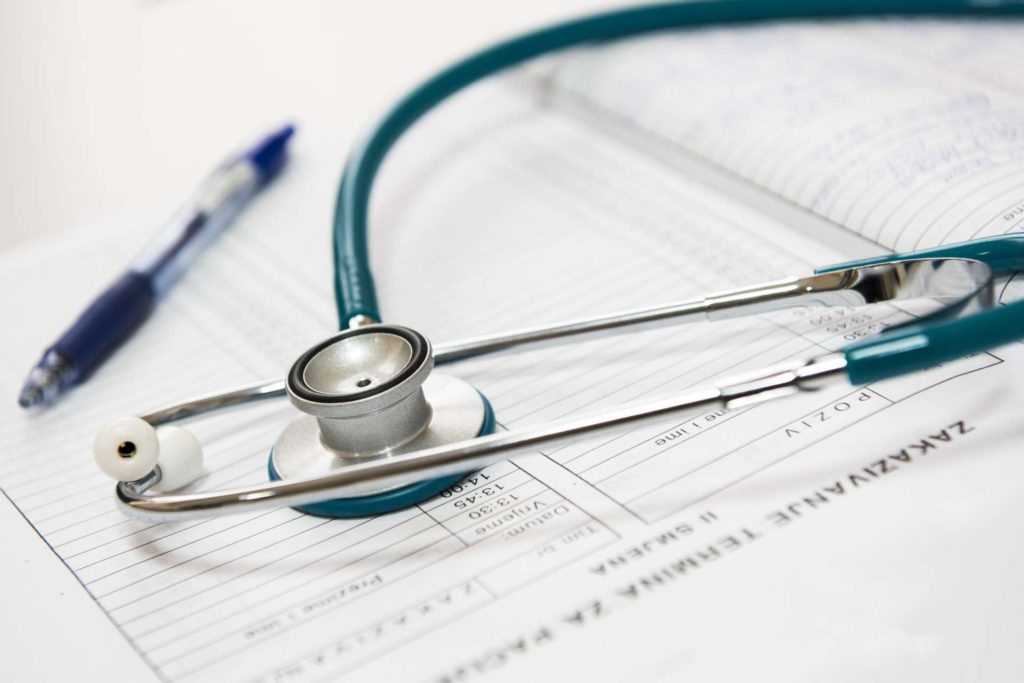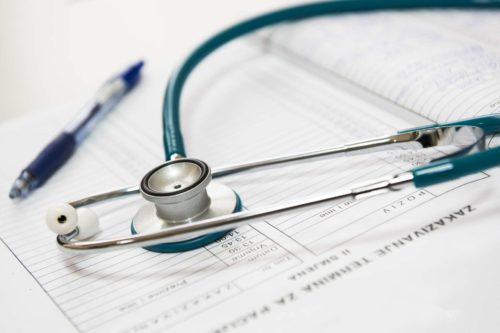You might not know it, but a large percentage of cancers are influenced by our lifestyles — innocent things you do every single day can be increasing your risk of getting cancer. February is National Cancer Prevention Month, and we want to help you out with some facts on how to prevent this terrible disease. A staggering 1,688,780 new cancer diagnoses are expected this year alone, but here’s how you can reduce your risk {from Dr. Meika of CarePoint Health}:

1. Stop smoking.
Enough said.
2. Eat properly.
Decrease saturated fats, red meat, charbroiled foods, and deep-fried foods. Eat more fruits, vegetables, whole grains, high-fiber foods, and fish. Dietary improvements can reduce the risk of colon and prostate cancer.
3. Exercise regularly.
Exercise will help protect you from colon cancer, prostate cancer, breast cancer and maybe even some reproductive cancers.
READ: Crunch Fitness in Hoboken {Inside: FREE 5-Day Pass + Personal Training Sesh
4. Cut down on drinking.
Excess alcohol increases the risk of mouth cancers, larynx {voice box}, esophagus {food pipe}, liver, colon, and breast cancer — smoking and drinking only makes it worse.
5. Avoid unnecessary exposure to radiation.
Well, duh! By the way, you don’t always need an x-ray. Wear sunscreen and sunglasses and remember — tanning is not your friend.
6. Take your daily vitamins
Evidence suggests that vitamin D may help reduce the risk of prostate cancer, colon cancer, and other malignancies.
7. Get Screened.
Breast Cancer (mammogram)
Age 21-29 Screening is only needed if you are at increased risk
Age 30 – 39 Screening is only needed if you are at increased risk
Age 40 – 49 Starting at age 45, women should get mammograms every year.
Age >50 Women ages 50 to 54 should get mammograms every year. Starting at age 55, you should switch to getting mammograms every 2 years, or you can continue to get one every year.
Cervical Cancer (pap smear)
Age 21-29 All women should have a Pap test done at least every 3 years.
Age 30 – 39 Women at average risk should get a Pap test and HPV test every 5 years (even if you’ve been vaccinated against HPV)
Age 40 – 49 Women at average risk should get a Pap test and HPV test every 5 years
Age >50 Women at average risk should get a Pap test and HPV test every 5 years
Colon Cancer (colonoscopy)
Age 21-29 Screening is only needed if you are at increased risk
Age 30 – 39 Screening is only needed if you are at increased risk
Age 40 – 49 Screening is only needed if you are at increased risk
Age >50 Screening should start at age 50.
Lung Cancer (CT scan)
Age 21-29 Risk reduction recommended
Age 30 – 39 Risk reduction recommended
Age 40 – 49 Risk reduction recommended
Age >50 If you are/were a smoker, Starting at age 55 or older you can get low-dose CT scans to screen for early lung cancer.
Prostate Cancer (digital rectal, blood test)
Age 21-29 Screening is only needed if you are at increased risk
Age 30 – 39 Screening is only needed if you are at increased risk
Age 40 – 49 Screening is only needed if you are at increased risk, but start the conversation with your doctor at age 45.
Age >50 Screening should start at age 50, talk your doctor about risks and benefits of testing.
See More: Breast Cancer Awareness: 10 Things You Should Eat {For Breast Health}
8. Know your own body
Screening tests can help detect cancer in early stages, but you should always be alert for symptoms of the disease. CAUTION is a simple way to remember when to see the doctor.
C: Change in bowel or bladder habits
A: A sore that does not heal
U: Unusual bleeding or discharge
T: Thickening or lump in the breast or elsewhere
I: Indigestion or difficulty in swallowing
O: Obvious change in a wart or mole
N: Nagging cough or hoarseness
As always, prevention is the best medicine — so this February {and every day}, be sure to educate yourself on how to prevent cancer and reduce your risk.
How do you take care of your body to prevent diseases like cancer? Share with us in the comments!
Have you joined our Facebook group yet? Request here to gain access to even more local tips, and connect with fellow Hudson County residents.
This information should not be used or relied upon for any diagnostic or treatment purposes. Dr. Meika expressly disclaims responsibility and shall have no liability for any damages, loss, injury or liability whatsoever suffered as a result of your reliance on the information contained in this site. Dr. Meika does not endorse specifically any test treatment or procedure mentioned on this site. If you are having a medical emergency please call 9-1-1.










